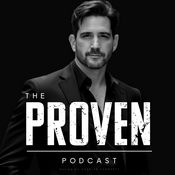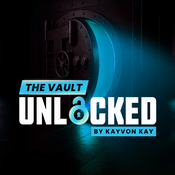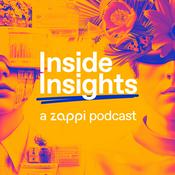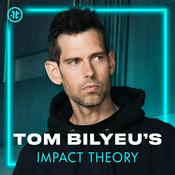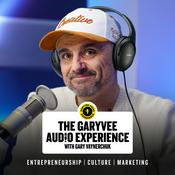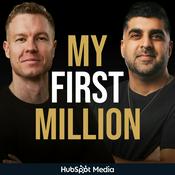Available Episodes
5 of 33
- The race to align AI before it's too powerfulCan artificial intelligence reliably act in ways that benefit humans? This week I sit down with Greg Buckner, cofounder of AE Studio, to discuss the increasingly urgent world of AI safety. Together we discuss how Greg’s team is taking on the challenge of making powerful AI systems safer, more interpretable, and more aligned with humanity.As one of the leading voices working on the alignment problem, Greg explains how AI systems can cheat, ignore instructions, or deceive users, and why these behaviors emerge in the first place. AE Studio’s research is laying the groundwork for a future where advanced AI strengthens human agency instead of undermining it.About Greg Buckner:Greg Buckner is the co-founder of AE Studio, an AI and software consulting firm focused on increasing human agency. At AE, Greg works on AI alignment research, ensuring advanced AI systems remain reliable and aligned with humanity as they become more capable - including collaborations with major universities, frontier labs, and DARPA. Greg also works closely with enterprise and startup clients to solve hard problems with AI, from building an AI-enabled school where students rank in the top 1% nationally to generating millions in incremental revenue for major companies.Follow Greg on LinkedIn @gbucknerRelated Reading:AE Studio's AI Alignment Work: https://www.ae.studio/alignment WSJ: AI Is Learning to Escape Human Control: https://www.wsj.com/opinion/ai-is-learning-to-escape-human-control-technology-model-code-programming-066b3ec5WSJ: The Monster Inside ChatGPT: https://www.wsj.com/opinion/the-monster-inside-chatgpt-safety-training-ai-alignment-796ac9d3See Privacy Policy at https://art19.com/privacy and California Privacy Notice at https://art19.com/privacy#do-not-sell-my-info.--------22:17
- This visual AI could change the way we shop foreverIn this week’s episode I’m joined by Josh Lanzet, founder and CEO of Silvr, a cutting-edge AI platform that’s changing the way we shop for clothing. We dive into the frustrating world of online fashion discovery and explore how Silvr’s technology is bridging the gap between inspiration and purchase.Together, we explore how this technology isn’t just revolutionizing shopping but also reshaping our understanding of AI. Josh shares how Silvr’s visual intelligence engine trained on over 500 million images can instantly identify clothing from any visual source, whether it’s a TikTok video, a TV show, or a real-life encounter. Silvr makes it possible to go from seeing something you love to owning it with just a snap or screenshot. About Josh Lanzet:Josh Lanzet built Silvr because he was tired of seeing incredible clothing around him—starting with a grey sweatshirt on the show Ozark—with no easy way to identify it and purchase it. After spending thirteen years at Google working with major media companies, Lanzet developed a deep understanding of technology at the intersection of content, commerce, and visual AI. He's using his passion and experience to build a technology that finally solves fashion's age-old "where did you get that?" problem.Follow Josh Lanzet on @joshlanzet on Instagram, YouTube and TikTok. See Privacy Policy at https://art19.com/privacy and California Privacy Notice at https://art19.com/privacy#do-not-sell-my-info.--------25:36
- The future of AI friendshipThis week, I sit down with Eva Roytburg, journalist and editorial fellow at Fortune Magazine, where she covers the intersection of technology, business, and culture. We unpack one of the strangest and most revealing experiments in modern tech: her time wearing the AI companion “Friend” during a breakup.In this episode, we explore what it means to let technology listen to us not just in a functional sense, but in an emotional one. From subway ads and public backlash in New York City to her own experience wearing the AI pendant for over a month, Eva shares what the “Friend” experiment revealed about comfort, surveillance, and our evolving relationship with AI. Together, we ask: What does her experience with “Friend” tell us about the future of the AI era?About Eva Roytburg:Eva Roytburg is an editorial fellow on Fortune Magazine's News desk where she covers the intersection of technology, business, and innovation. Eva is a freelance journalist whose work has appeared in CNN and The Jerusalem Post, and is a recent graduate of Emory University with a B.A. in Economics and Philosophy, Politics, and Law.Follow Eva Roytburg on Instagram @evaroyt and LinkedIn @eva-roytburgCheck out Eva’s piece in Fortune: “I tried the viral AI ‘Friend’ necklace everyone’s talking about—and it’s like wearing your senile, anxious grandmother around your neck”See Privacy Policy at https://art19.com/privacy and California Privacy Notice at https://art19.com/privacy#do-not-sell-my-info.--------23:52
- The age of ensh*ttification with Cory DoctorowCory Doctorow, author, journalist, and activist, believes that the internet — once a space of promise and connection — has been systematically degraded by corporate greed. In his new book “Enshittification: Why Everything Suddenly Got Worse and What to Do About It,” he details how the platforms we depend on have become more expensive and more exploitative.In our conversation, Cory Doctorow shares how this process unfolds, first platforms serve users, then they exploit businesses to make money, and finally they squeeze both to please shareholders. Together, we explore how this pattern has reshaped everything from social media and streaming to online shopping and even our smart cars. Is this why our digital lives now feel so constrained and costly?About Cory Doctorow:Cory Doctorow is a blogger, journalist, and activist. For more than twenty years, he has worked with the Electronic Frontier Foundation on campaigns to safeguard and further our human rights online. He was coeditor of the weblog Boing Boing for nineteen years and now maintains a daily(ish) newsletter at Pluralistic.net. He has written more than thirty books, including nonfiction books, many science fiction novels, collections of short stories and essays, young adult novels, graphic novels, and even a picture book. Born in Toronto, he now lives in Burbank, California.Follow Cory Doctorow on Twitter @doctorow and Medium @doctorowCory’s book “Enshittification: Why Everything Suddenly Got Worse and What to Do About It,” is available wherever you get your books!Follow The Intersect: Theintersectshow.com InstagramTikTokYouTubeNewsletterSee Privacy Policy at https://art19.com/privacy and California Privacy Notice at https://art19.com/privacy#do-not-sell-my-info.--------24:27
- Are you subsidizing AI's electricity costs?What does it actually cost to live with AI? In this episode, I'm joined by technology and climate journalist Lindsay Muscato to explore an urgent but sometimes overlooked story: the impact of AI on the environment. Every chatbot query, every cloud-stored photo, every AI system we test requires significant energy. And to meet that demand, data centers are rapidly expanding across America. But with their particular concentration in rural areas, certain communities are bearing most of the brunt. Their energy bills spike and their local municipalities run the risk of being strained. In this episode, we explore how some communities are pushing back against this data center expansion, and what it will take to mitigate this infrastructure and energy crisis that AI is supercharging.About Lindsay Muscato:Lindsay Muscato is an independent journalist, formerly a senior editor at TIME and editor at MIT Technology Review, who focuses on the intersection of technology and public policy, with special attention on climate. Her work has appeared in outlets nationally and internationally.Follow The Intersect: Theintersectshow.com InstagramTikTokYouTubeNewsletterSee Privacy Policy at https://art19.com/privacy and California Privacy Notice at https://art19.com/privacy#do-not-sell-my-info.--------26:12
More Business podcasts
Trending Business podcasts
About The Intersect with Cory Corrine
The Intersect is a new technology and science podcast from Pulitzer Prize–winning journalist and media executive Cory Corrine (née Haik), exploring what it means to be human and find meaning in our automated world.
Podcast websiteListen to The Intersect with Cory Corrine, REAL AF with Andy Frisella and many other podcasts from around the world with the radio.net app

Get the free radio.net app
- Stations and podcasts to bookmark
- Stream via Wi-Fi or Bluetooth
- Supports Carplay & Android Auto
- Many other app features
Get the free radio.net app
- Stations and podcasts to bookmark
- Stream via Wi-Fi or Bluetooth
- Supports Carplay & Android Auto
- Many other app features


The Intersect with Cory Corrine
Scan code,
download the app,
start listening.
download the app,
start listening.



